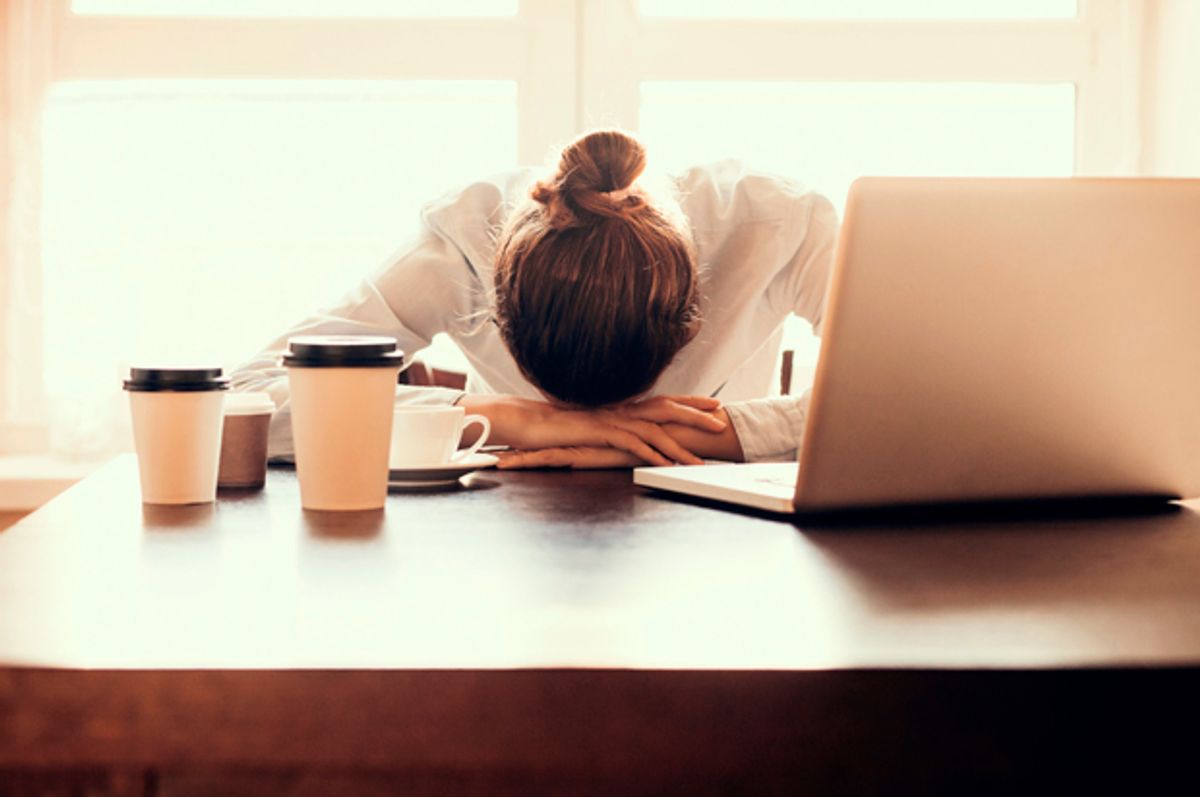Stress and anxiety can strike almost everyone at some time or another and this can be made worse by not getting enough sleep, having unwanted thoughts, and by having the wrong mindset.
Stress creates a surge of hormones in your body, which then causes your body to produce cortisol and adrenaline. These hormones will help you deal with any pressure or threats and this response is known as the flight or fight response.
The adrenaline that is produced will cause your heart rate to rise, as well as your blood pressure and you will have extra energy.
Cortisol is the stress hormone and will temporarily increase energy by triggering the release of glucose into the bloodstream, which will help you to fight or flight.
As your body responds to stress, it will regulate itself so that your hormone levels fall and with it, your heart and blood pressure will go back to normal.
We actuallyneed some stress on a daily basis, because it is actually what motivates us. However, when there is too much or too little stress, it can become a problem.
If you lack of stress, then your body will be under-stimulated and on the other hand, if you have too much stress then stress hormones will constantly be released. These can cause headaches, high blood pressure, and stomach issues. Having too much stress can also increase the risk of stroke or heart attack.
Not only are therephysical problems caused by stress, it can also cause mental issues like depression, anxiety, anger and more.
What can relaxation do?
There is something called therelaxation response, which is a state of deep rest that has been designed to change our physical and emotional responses to stress.
With relaxation, we are able to reduce the stress that we feel, which will then counteract the effects of stress like anxiety.
The relaxation response will also help to lower your blood pressure, improve blood circulation; lower your heart rate and more. It will also give you a better sense of well-being.
However, triggering therelaxation response is not always that easy, but here are proven ways that you can relax and fight the effects of stress.
Proven ways to relax
If you are looking forways to relax, then take a look at these great ideas, which will help to trigger the relaxation response and will also help to lift any stress that you may have.
Buy a plant
Nature is able to improve our well-being and having a little green around can actually improve our moods. House plants will help to purify the air and also calm you down. Just being around plants can help induce the relaxation response.
Turn your screens off before you go to bed
Your melatonin production is affected by TV and computer screens, which will in turn mess with your sleep. You should thenavoid screens before you go to bed, so that you can get into a better sleep rhythm and getting a good night’s sleep will also help you to feel more relaxed and refreshed.
Listen to classical music
Any music that you love will automatically make you feel better, but classical music will help to slow your heart rate, decrease your stress levels and lower your blood pressure. So, put on some Mozart or try Weightless by Marconi’s Union, which is thought to be the most relaxing song.
Drink green tea
Green tea contains L-theanine, which reduces stress. And by adding honey, you can counteract free radicals and reduce inflammation.
Make yourself laugh
You can watch a funny movie; have a fun time with a friend or anything that makes you laugh. Laughter is a great stress buster and those that chuckles have lower levels of cortisol, which will then increase the response to stress.
Have a piece of chocolate
A piece of dark chocolate can help with stress, as it releases the happy chemicals, which are called beta endorphins.
Try yoga
Yoga is a great stress reliever because it involves controlled breathing, as well as exercise. Also, there are poses that will relax your muscles to help reduce depression, anxiety, and tiredness.
Have a banana
Potassium helps to regulate blood pressure and some may find it beneficial to eat a banana when they are stressed. It will help you recover from stress more quickly.
Practice aromatherapy
Aromatherapy is still being studied in terms of its benefits, but there are many essential oils that will help you to relax and combat stress. You can diffuse essential oils via a burner or you can create a room mist or body spray. Another great way to use essential oils is in a bath. Of course, soaking in a bath anyway is relaxing.Recommending an oil or two for relaxation is easy as there are so many. You can try rose, lavender, chamomile, vanilla, or geranium.
Chew gum
Chewing gum can lower cortisol and improve your mood. In times of multi-tasking, it can improve your alertness and reduce your stress.
Exercise
Exercise is a great stress buster as your body will release mood elevating hormones like endorphins and in return, reduce cortisol and adrenaline.
There are a number of ways that you can relax and relaxation is a must to be able to combat too much stress. You need to be able to reduce your stress and relax for your own physical and mental well-being. What do you do to relieve stress?


Shares